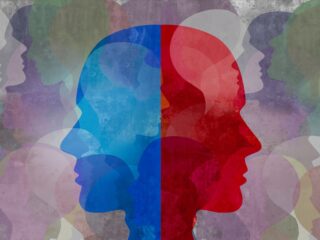If you are addicted to one or more substances, one of the first things you might experience is the inability to uphold and/or execute basic life skills. These skills can include keeping up with household chores such as dishes, laundry, and the overall cleanliness of your home. Or, you might begin isolating yourself to the point where you no longer have the appropriate communication skills needed to navigate relationships with others. Your abilities to manage your finances, remember important dates or live a healthy life can be compromised. Sadly, if your addiction continues, chances are that these consequences will become worse. But thankfully, you can get help. Specifically designed to help those who struggle to maintain order in their everyday lives, life skills therapy can invigorate and educate those who need a fresh start.
What is Life Skills Therapy?
When addiction is present, nearly everything except using and acquiring more of the desired substance usually sits on the back burner. If you have struggled with addiction, you know this to be true. Even if you never wanted to neglect the simple things in life or those you loved, you might have done so because your desire to use was stronger than you could manage at the time. Or, you could say, you were “powerless” over your addiction. However, when in treatment, you can get your power back and put it to good use.
Life skills therapy offers patients the chance to once again learn basic skills that they might have abandoned while actively addicted. The goal of life skills therapy is to help you restore the skills that you need to utilize on a daily basis. When participating in life skills therapy, you will learn how to make healthy decisions, improve your communication skills, maintain your responsibilities, and much more so that you can live a successful life free of drug and alcohol addiction.
Tools You’ll Learn in Life Skills Therapy
Life skills therapy can help individuals foster significant changes in their personal growth. If you engage in life skills therapy, you can utilize the tools provided to you so that you can better your outcomes for a happy, healthy life when you leave treatment. Some of the most important tools you will develop are listed below.
Household Responsibilities
While it might seem minor to some, it can be easy to completely forget what goes into making a household run effectively when you are addicted to drugs and/or alcohol. Let’s face it – the majority of your time was likely not focused on caring for your home, rather fueling your substance abuse. So, life skills therapy can help you get your surroundings in order by teaching the importance of an organized, clean space. Additionally, you can learn how to do things that you might not have done before, such as laundry or washing the floors.
Communication Techniques
Just as you might have neglected your living space, you likely isolated yourself from those whom you love. As a result of “functioning” in this manner for a period of time, you might not know how to properly communicate with your loved ones. In fact, you might not have ever had effective communication skills in the first place. Life skills therapy can help you learn these skills so that you are actively listening to others and considering their feelings, all while ensuring that you are communicating your needs rather than stuffing them away.
Coping Mechanisms
One of the biggest risks to one’s recovery is the potential for relapse. Even the most successful people in recovery can relapse within an instant. Therefore, it is always important to be prepared for what to do in the event that you feel like a relapse might occur.
Life skills therapy can work to equip you with coping mechanisms that allow you to handle temptations, stress, and other potential relapse triggers that come your way. Some of the many coping mechanisms that you can obtain through life skills therapy can include the following:
- Avoiding high-risk situations
- Finding sober ways to de-stress
- Practicing honesty
- Journaling
- Identifying triggers
- Attending 12-Step meetings
As you work to develop coping mechanisms, ensure that you establish some that are specific to your unique needs.
Emotional Regulation
Learning how to regulate your emotions and emotional responses can be pivotal in your recovery. Participating in life skills therapy can help you learn how to do that in a manner that keeps you on the right track. For example, rather than allowing yourself to get worked up over a stressful event, regulating your emotions so you can appropriately calm down or prevent yourself from getting worked up is something you can learn through life skills therapy.
What are the Benefits of Life Skills Therapy?
When you actively participate in life skills therapy, the benefits are endless. Not only are you beginning to change your life for the better, but you are also laying a foundation that will hopefully allow you to continue to succeed in your recovery.
Some of the benefits of life skills therapy can include, but are not limited to, the following:
- Decreased or completely eliminated substance abuse
- Reduction in aggressive behaviors
- Decreased suicidal thoughts, ideations, behaviors, or attempts
- Reduced risk of contracting bloodborne diseases such as HIV or hepatitis
- Improved communication skills
- Increase in self-esteem and sense of self-worth
- Improved decision-making and concentration
When your life skills have improved, you can benefit from the structure that being responsible offers. Your life may become more predictable and easier to manage, making everyday life more enjoyable.
How Does Life Skills Therapy Improve Mental Health?
Even though addiction is classified as a disease, it can certainly affect one’s mental health in a number of ways. Plus, studies show that a large majority of people experience both a substance use disorder and a mental health disorder at the same time, which is known as a dual diagnosis. Just as life skills therapy can help improve one’s substance use disorder, it can equally help to improve one’s mental health disorder.
Life skills therapy provides individuals with the information they need to care for themselves, which is a massive benefit. When individuals can care for themselves, they are more likely to prioritize their mental, physical, and emotional needs. Mental health disorders like anxiety or depression often require individuals to place their self-care at the forefront of their daily lives. Self-care does not just mean getting enough rest, eating well, and exercising, but it also means many other things. For example, good self-care is practiced by keeping a clean, organized home and planning ahead of time for specific events. Doing these things can easily improve one’s life in ways that help to reduce anxiety, depression, and symptoms associated with other mental health disorders.
Life Skills Therapy and Relapse Prevention
All therapies offered in addiction treatment programs are designed to help reduce relapse from occurring. Unfortunately, relapse is a part of recovery in one way or another, as some people experience firsthand while others actively work to avoid it. But when life skills therapy is applied, individuals in recovery can increase their likelihood of continuing to remain sober. Some of the reasons why this occurs includes the following:
- Improved communication skills, allowing for individuals to feel comfortable discussing their emotions rather than hiding them away
- Increased likelihood of being social with others, which can help to increase a support system of friends and loved ones
- Greater chance of obtaining employment, which provides structure, a schedule, and something to be accountable to
- Encourage independence and self-care, both of which can improve one’s self-esteem and sense of self-worth
Life skills therapy can serve as a critical aspect in one’s recovery, as it offers many benefits and can help to reduce one’s chances of relapsing. That does not mean that someone who participates in life skills therapy won’t relapse, but it does mean that they are more likely to rebound from that relapse and/or manage it better in the long run.
Treatment for Life Skills Therapy in Ohio
Millions of people struggle with addiction on a regular basis, however, you do not need to be one of them. You have the power to change the course of your life, establish the right tools necessary to increase your overall well-being, and live in recovery.
If you are addicted to drugs and/or alcohol, you can make the call that will help save your life. Do not spend one more second trapped within a cycle of substance abuse that only promises a bleak future. Instead, call us or visit our contact form right now so we can help you work towards your recovery in a positive, healthy way that meets all of your needs and more.







